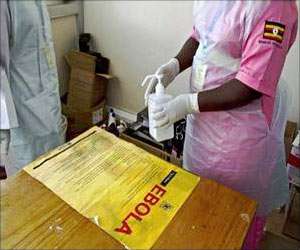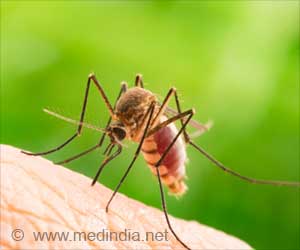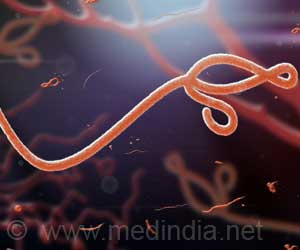International health experts admitted that the Ebola survivors have been experiencing crippling complications including sight and hearing impairment.

Matshidiso Moeti, the WHO’s new head in Africa, said that Liberian survivors had been reporting a range of problems, including sight and hearing impairment. "We need to be aware that complications may be occurring and pay attention when people are being treated in case there is something that can be done to help them," she said in the Liberian capital Monrovia.
Moeti said the UN agency had initially focused on keeping people alive in its battle against the worst ever outbreak of the virus, which it says has left almost 11,000 people dead in Liberia, Guinea and Sierra Leone. "So we are very much learning about this," Moeti said.
More than 26,000 people have been infected with Ebola since the outbreak began in December 2013, according to the WHO, which admits the official mortality figures are probably some way short of the real death toll.
The epidemic ravaged the three countries, infecting hundreds of people a week during its peak last autumn, but the spread has slowed to a crawl.
Liberia, once the hardest hit country, has reported no new cases since the last patient died on March 27 and was buried a day later.
Moeti’s comments were prompted as she toured Monrovia’s health facilities and Ebola-hit communities on Wednesday, where she met Beatrice Yordoldo, the last Liberian patient to leave a treatment centre alive.
The WHO acknowledged the issue as early as October, when it carried an interview on its website with a psychosocial support officer in Kenema, eastern Sierra Leone.
"We are seeing a lot of people with vision problems. Some complain of clouded vision, but for others the visual loss is progressive. I have seen two people who are now blind," Margaret Nanyonga said.
Nanyonga, who calls the problem "post-Ebola syndrome", said visual problems had affected around half of Ebola survivors in Kenema, while others complained of joint, muscle and chest pain and extreme fatigue. "We need to understand why these symptoms persist, whether they are caused by the disease or treatment, or perhaps the heavy disinfection," Nanyonga said.
With research thin on the ground, health authorities have no real measure of the extent of the problem, but it doesn’t appear to be confined to Africa.
American nurse Nina Pham, who was infected while caring for a Liberian man at a Texas hospital, told the Dallas Morning News last month she had experienced hair loss, aches and insomnia after being given the all-clear in October.
- Focus on saving lives -
Aches and fatigue are common side-effects in patients recovering from serious infection, resulting from the immune system’s release of chemicals to fight the illness.
But experts admit they don’t yet know if this is what is going on inside the bodies of Ebola survivors.
The speed of the spread of the virus took the world by surprise, and by the time a concerted international effort was in place to stem the epidemic, it had already overwhelmed the health services of the worst-hit countries.
The epidemic has dwarfed all previous outbreaks combined -- fewer than 2,500 cases were recorded between Ebola’s discovery in 1976 and the current outbreak -- and have killed around two-thirds of those infected, experts believe.
While survivors of previous outbreaks reported health complications, past epidemics were never big enough to warrant in-depth research into the after-effects.
A rare upside of the scale of the current outbreak has been that there are thousands of survivors who can be studied to give health authorities the knowledge to be better prepared for future outbreaks.
Moeti, a qualified medic who took up her five-year appointment in February, says the WHO is just beginning to play catch-up in its research into post-Ebola complications. "I think this is something about which we need to learn more in detail for the future so that, as part of treating people with Ebola we are looking out for these kinds of symptoms," she said. "Because I think in the first acute treatment of people with Ebola our focus was on keeping them alive and perhaps these other symptoms emerged later on."
Source-AFP
 MEDINDIA
MEDINDIA




 Email
Email






